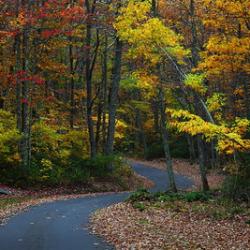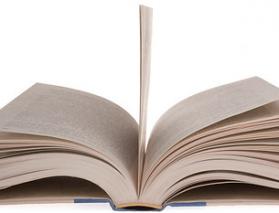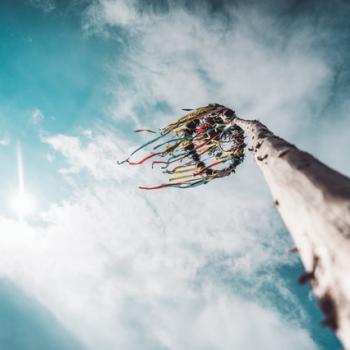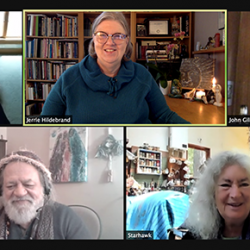The Witch stands at the window, looking out at the night. Far below she sees a group of students walking back from class in the cool of the dark, now that sunset has grown earlier. They walk in distinct groups. Each group seems to have its own speed of walking, its own style of gait, even its own way of carrying backpacks.
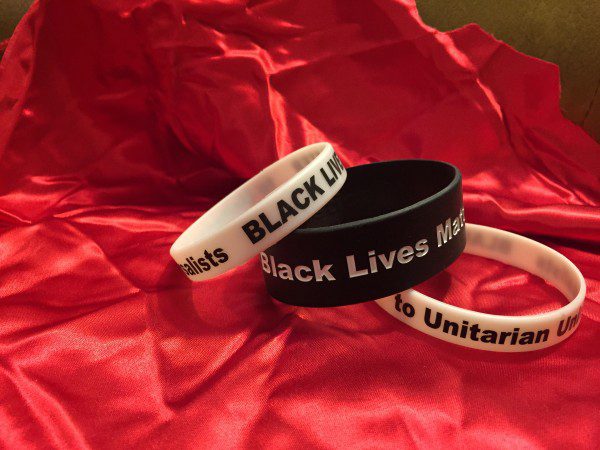
The apartment building where I live is home to a lot of college students, as well as a significant population of senior citizens and young families. There’s a college a short walk across the highway from here, and another just five minutes away by car. Probably in September we have as much as 20% turnover, our new residents mostly younger than 25, mostly living in groups of 2-5 in apartments with 2-4 bedrooms.
I get to watch Black Lives Matter, mostly in the responses of the neighbors, as these young people settle in.
Most of the Black students I meet have extraordinarily good manners. Don’t misunderstand me, here: I don’t mean ‘extraordinary compared to what I expected.’ I mean ‘extraordinary compared to the adults I meet every day.’ Please and Thank You at every opportunity. Holding elevator doors and insisting that the old lady go first. Offering to help with packages or pushing a wheeled cart or dozens of things. Why is that?
Could it be that they – or their parents – are afraid that the adults in the building (maybe even ‘especially the White adults’) might mistake them for “thugs” unless they are very careful?
Some of the older White residents appreciate this politeness. A few of them remark on it, each time, as if it is amazing. Some take it as their just due, even as they fail to reply in kind.
It strikes me as significant that the White students I meet here are nowhere near as attentive, courteous, careful, or caring. They’re not even as basically polite. Why is that?
Some of the same older residents ignore or excuse this behavior as ‘after all, they’re just kids.’ Why is that?
In the city where I live, there’s plenty of racist history, some of it quite recent. Not long ago a local government voted to take Four Million Dollars out of the school budget … at the same time that it paid Four Million Dollars to build a prison. How does this make sense?
Most of the public commentary from the White community complained about how expensive the prison was going to be but supported the idea that we needed another prison. Most of the public commentary from the Black community pointed out that the schools whose funding was cut most deeply were in Black neighborhoods, and the local prison population is overwhelmingly Black. And most of the people in prison today are there for victimless crimes or for three-strikes-and-you’re-out. Which, if you didn’t know, can be used to send a man to jail for decades — for jaywalking.
This year I’ve been reading Frederick Douglas again, as he expresses his grief at the fact that ‘America, land of the free’ has never yet been that for Black people.
Black Lives Matter.
In the UU congregation where I’m one of the ten or so people who occasionally plan Earth-based Spiritual Celebrations for Sunday mornings or weekend evenings, there is a long history of anti-racism work. Our congregation has people of lots of different races, the largest numbers about evenly divided between Black and White. There is a White anti-racism group, a White Privilege discussion group, a mixed color anti-racism education group. I might be missing other efforts. Our celebration of Martin Luther King day gathers about 300 people and sends them into the community to do clean-up, paint-up, and fix-up projects with considerable planning and work, and excellent results. As a congregation, we try to make a difference.
Our Black Lives Matter banner has been hanging for a bit over a year now. But we still occasionally have to answer questions about whether it shouldn’t read ‘All Lives Matter.’
Meanwhile, Black people are still being shot in circumstances in which White people would be given a warning, or a citation without even an arrest.
As a UU, I feel that I’m at least on the right side of history, even though I haven’t done much direct-action work on this issue beyond trying my best to make sure the people I come in contact with are fairly treated regardless of whatever marginalized group they might belong to.
As a Pagan, I notice that while there are a few Black faces in my Pagan communities, we White Pagans are still not as welcoming as I would like to people we characterize as ‘looking different.’ But as Pagans, we don’t find outrageous clothing or amazing haircolor or remarkable tattoos the least bit odd. So how is it that we are continually, accidentally, thoughtlessly rude to People of Color who come to worship in nature with us?
Crystal Blanton’s book Bringing Race to the Table gives important examples of the microaggressions that White people like me – and, full disclosure, actually me at times – have delivered to Black people who come to circle with us. We excuse ourselves on the grounds that we didn’t know better, that it was inadvertent, that it wasn’t personal …
But we should consider that people bleed when they are cut regardless of whether the paring knife meant to cut them or just slipped in someone’s hand. Racism cuts whether it comes from White cluelessness or White intent, or policies that are facially neutral but unevenly enforced.
Black Lives Matter. I want my communities of UUs, Pagans, and UU-Pagans to lift up Black voices and listen to what people are saying about their experiences of being ‘othered,’ and to address the behavior that we – as communities that have historically been heavily White – must change.
Black Lives Matter. Pass it On.







